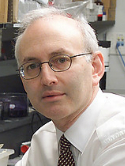| Abstract: |
We evaluated the results of high-dose chemotherapy and autologous hematopoietic stem cell transplantation in patients with diffuse aggressive non-Hodgkin lymphoma (NHL) in first relapse (Rel 1) or second complete remission (CR 2). Data were evaluated from the Autologous Blood and Marrow Transplant Registry on 429 patients with diffuse aggressive NHL who underwent transplantation in Rel 1 or CR 2. Transplantations were performed between 1989 and 1996 and were reported to the Autologous Blood and Marrow Transplant Registry by 93 centers in North and South America. The probability of 3-year survival was 44% (95% confidence interval [CI], 33%-55%). The probability at 3 years of progression-free survival was 31% (95% CI, 27%-36%). Patients who underwent transplantation in CR 2 had a 3-year probability of progression-free survival of 38% (95% CI, 30%-46%) compared with 28% (95% CI, 22%-33%) for those who were not in remission at the time of transplantation (P<.001). In multivariate analysis, chemotherapy resistance, increased lactic dehydrogenase at diagnosis, an interval of <12 months from diagnosis to relapse, age ≥40 years, and use of myeloid growth factors to accelerate posttransplantation bone marrow recovery were adverse predictors of survival. High-dose chemotherapy and autologous hematopoietic stem cell transplantation for patients with diffuse aggressive NHL in CR 2 or Rel 1 resulted in better outcome for patients with chemotherapy-sensitive disease, longer relapse-free intervals, and age <40 years. Exposure to myeloid growth factors to accelerate recovery for recipients of bone marrow grafts may increase the risk of disease progression or death. © 2004 American Society for Blood and Marrow Transplantation. |
| Keywords: |
adolescent; adult; cancer survival; child; controlled study; treatment outcome; aged; child, preschool; disease-free survival; middle aged; survival rate; retrospective studies; human cell; major clinical study; prednisone; cancer recurrence; doxorubicin; cancer combination chemotherapy; cancer growth; cytarabine; methotrexate; drug megadose; cancer diagnosis; prospective studies; etoposide; granulocyte macrophage colony stimulating factor; recurrence; cyclophosphamide; vincristine; hematopoietic stem cell transplantation; drug resistance, neoplasm; cancer mortality; chlormethine; procarbazine; age; risk assessment; cancer resistance; confidence interval; survival time; cancer regression; disease severity; nonhodgkin lymphoma; register; registries; lymphoma, non-hodgkin; probability; remission induction; bleomycin; outcomes research; lactate dehydrogenase; multivariate analysis; anthracycline derivative; bone marrow transplantation; convalescence; growth factor; granulocyte colony stimulating factor; transplantation, autologous; autologous hematopoietic stem cell transplantation; north america; drug exposure; non-hodgkin lymphoma; recipient; growth substances; south america; high-dose chemotherapy; lymphoma, large-cell, diffuse; humans; prognosis; human; male; female; article; enzyme tests
|



